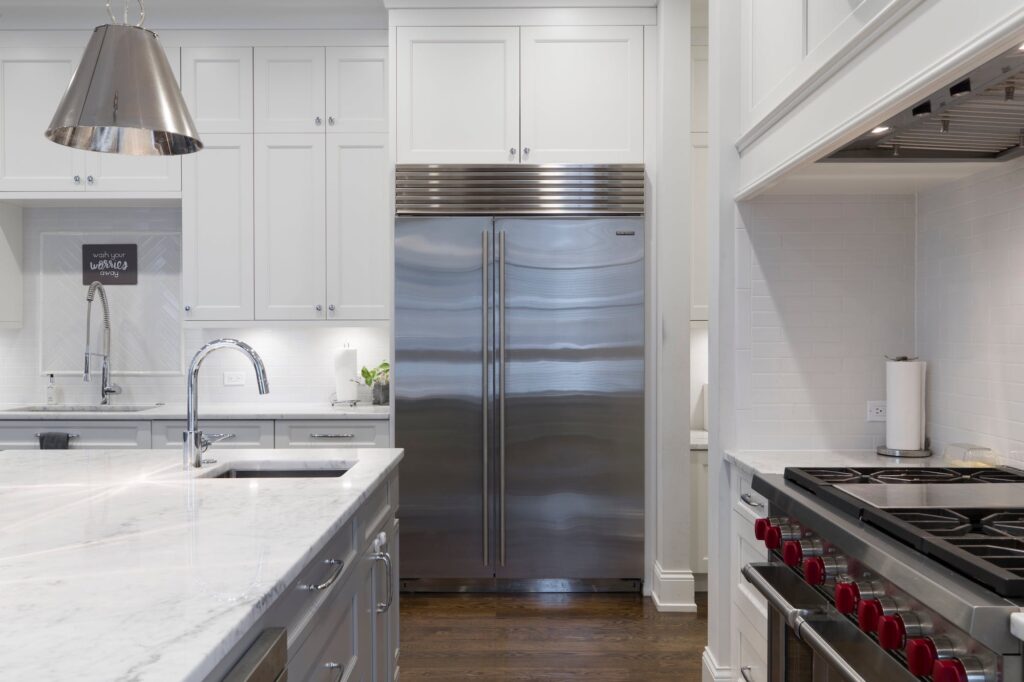Refrigerators: Essential Appliance for Modern Kitchens
Refrigerators are an indispensable part of modern kitchens, playing a crucial role in food preservation and storage. With advances in technology and design, the variety of refrigerators available today can meet diverse needs and preferences. This guide explores different types of refrigerators, their features, and considerations for making an informed purchase.

Understanding Refrigerators
A refrigerator is a home appliance that uses a thermally insulated compartment and a heat pump to transfer heat from the inside of the unit to its external environment, keeping the inside of the fridge cool and well below room temperature. This cooling process preserves perishable foods, prolongs their shelf life, and maintains essential nutrients.
Types of Refrigerators
- Top Freezer Refrigerators: Traditional design with the freezer on top.
- Bottom Freezer Refrigerators: Freezer located at the bottom for easier access to refrigerator compartments.
- Side-by-Side Refrigerators: Two doors with fridge and freezer side by side.
- French Door Refrigerators: Combines a bottom freezer with a two-door upper section.
- Compact or Mini Refrigerators: Small-size fridges ideal for offices, dorm rooms, or small apartments.
- Smart Refrigerators: Equipped with advanced features like touch screens, internet connectivity, and smart home integration.
Key Features to Consider
- Size and Capacity: Based on household size and kitchen space.
- Energy Efficiency: Energy-efficient models save on electricity bills and are environmentally friendly.
- Storage Options: Adjustable shelves, door bins, and drawers for organization and accessibility.
- Temperature Control: Features for controlling and maintaining consistent temperatures.
- Noise Level: Some models operate more quietly than others.
Technological Advancements
- Smart Technology: Integration with smartphones for remote monitoring and control.
- Inverter Technology: Adjusts the compressor speed for better energy efficiency.
- Water and Ice Dispensers: For convenient access to cold water and ice.
- Air Filtration Systems: To keep the fridge interior odor-free and fresh.
Maintenance and Care
- Regular cleaning and defrosting (if manual defrosting is required).
- Keeping the refrigerator away from heat sources and ensuring good ventilation.
- Checking and cleaning door seals to ensure optimal performance.
Shopping for a Refrigerator
- Budget: Refrigerators vary widely in price; setting a budget can narrow down options.
- Aesthetic Preferences: Choosing a style and color that fits with kitchen decor.
- Warranty and After-sales Service: Understanding the warranty coverage and availability of after-sales service.
Sustainability Considerations
- Opting for models with lower environmental impact and recyclable materials.
- Disposing of old refrigerators responsibly to prevent environmental harm.
Conclusion
Refrigerators are a cornerstone of contemporary kitchen functionality and design. Selecting the right refrigerator involves balancing size, capacity, features, energy efficiency, and budget considerations. With a wide range of options available, from basic models to high-tech smart refrigerators, there’s a fridge to suit every household’s needs and preferences. Proper maintenance and care can further enhance the efficiency and lifespan of this essential kitchen appliance.






